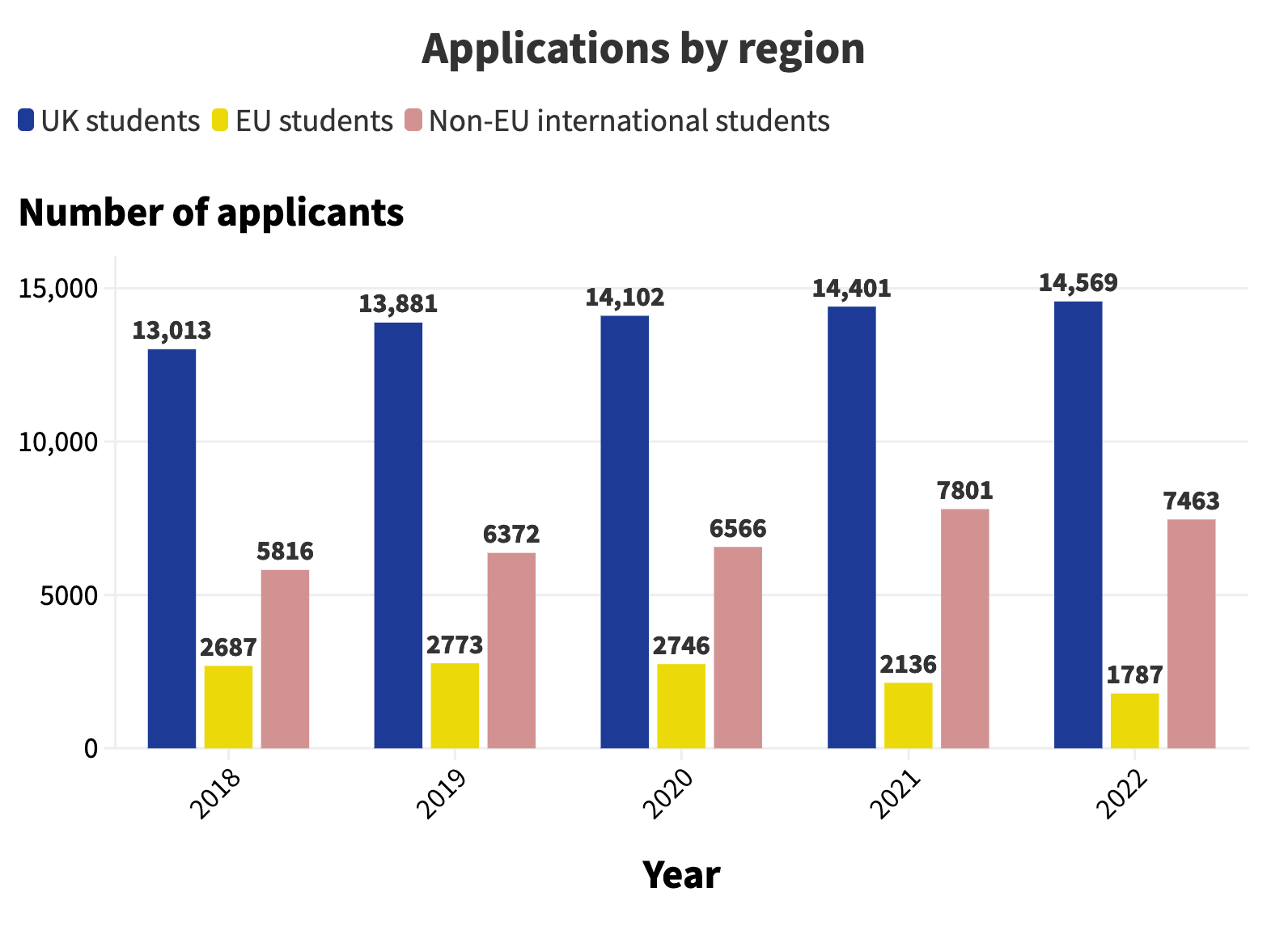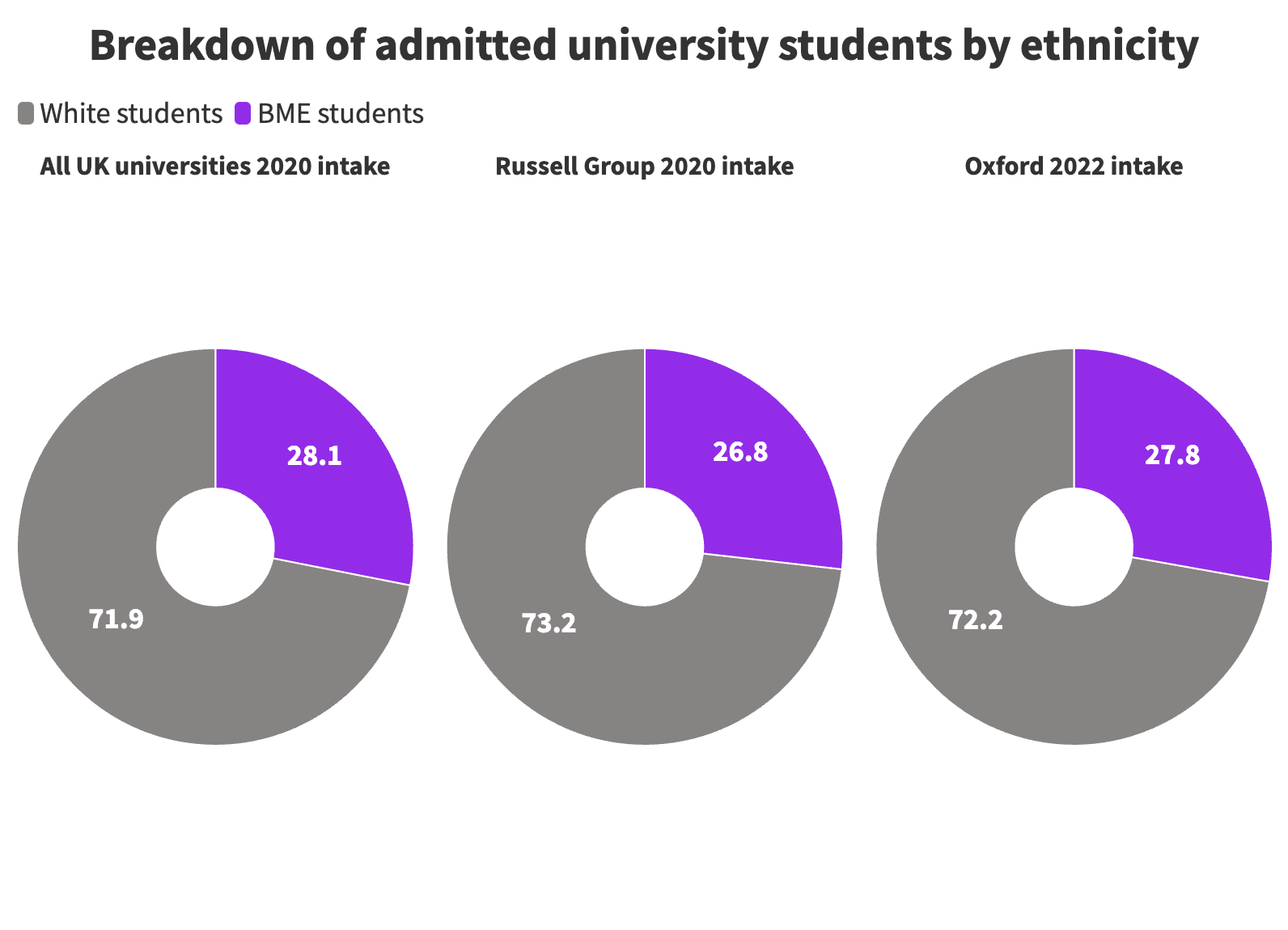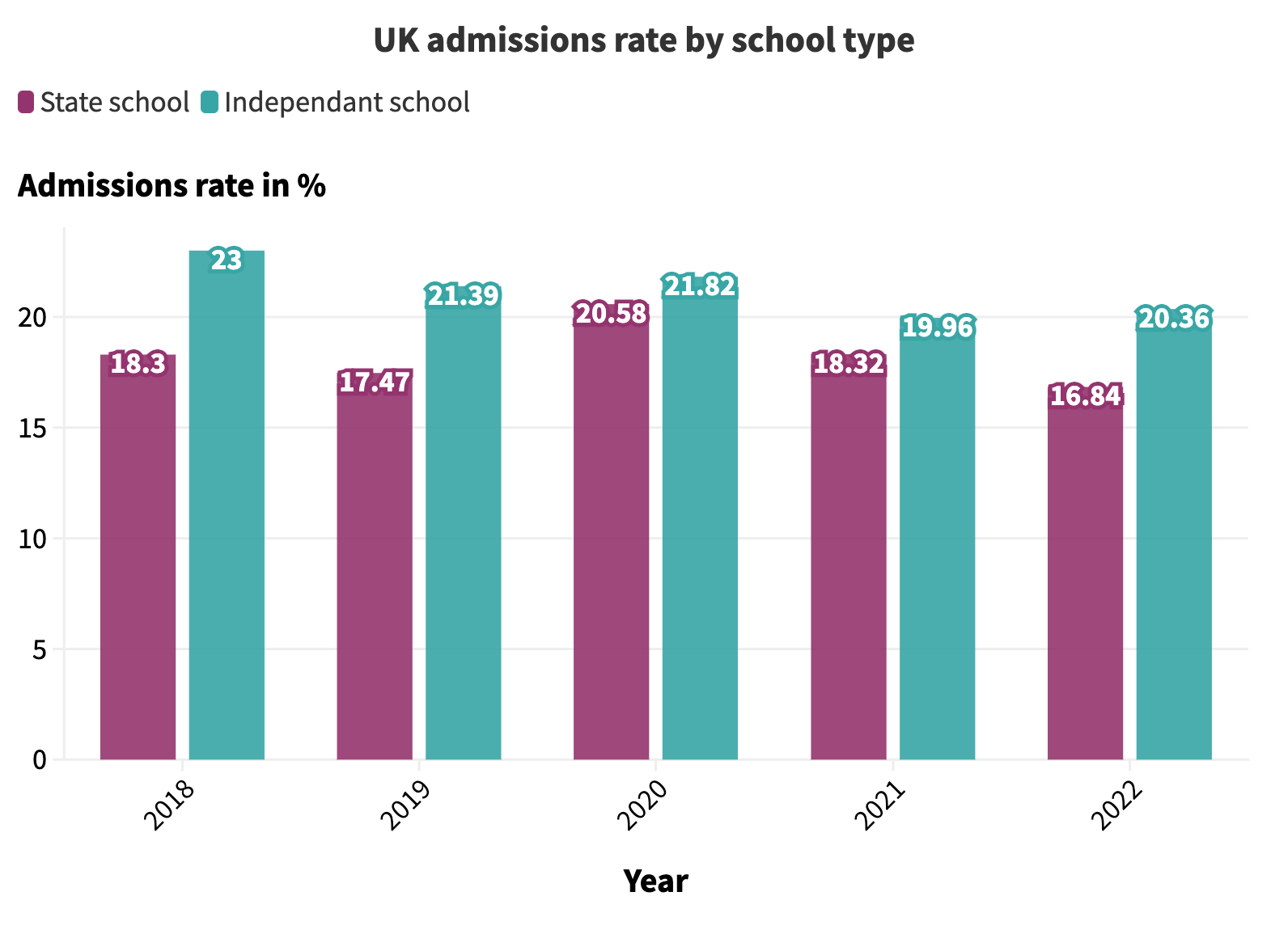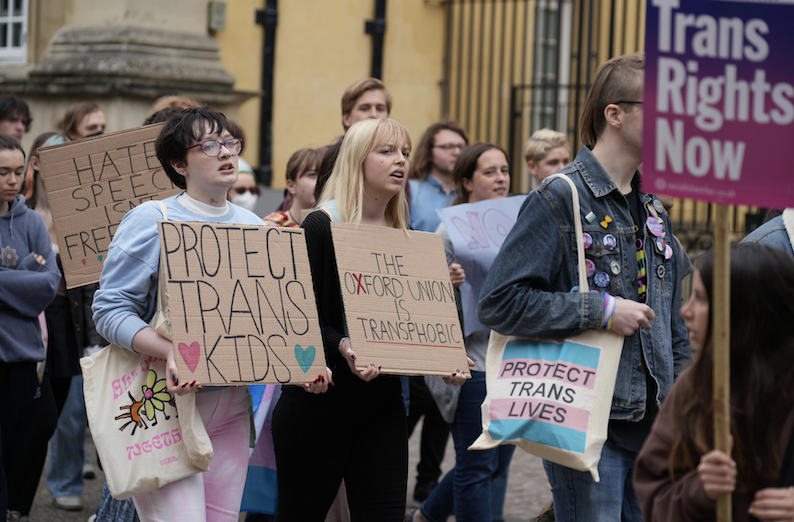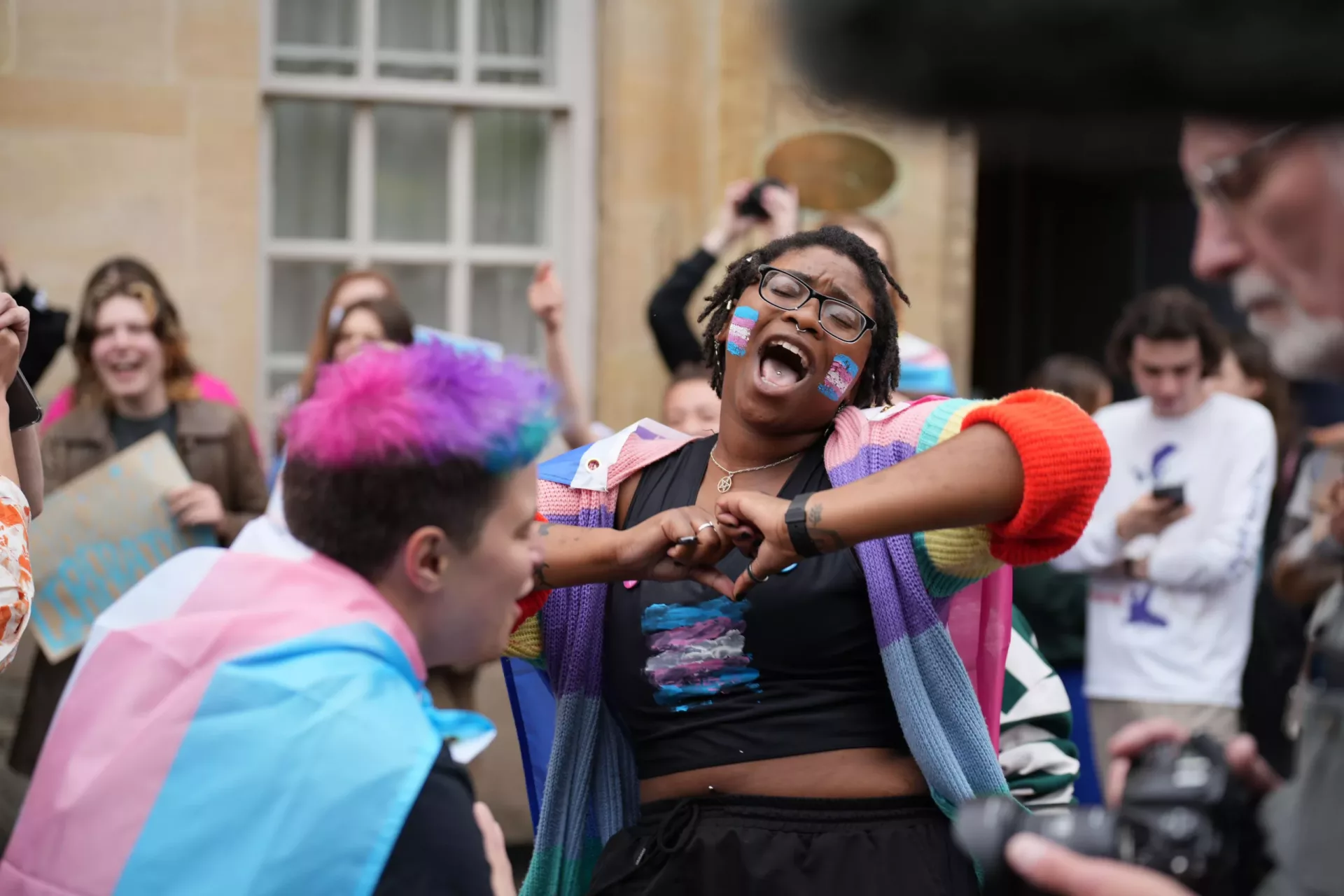When the line-up for performers at Exeter College Ball was released, most did not know what to make of this ‘Steam Down’. A group of self-described ‘Afro-Infinitive’ artists from South London. Usually, Oxford balls have the same old, same old student bands, who are good, don’t get me wrong, but Steam Down was so different from what we were expecting. Different, yet so insanely good.
When Steam Down performed at Exeter Ball, you wouldn’t be able to tell we had just finished collections the day before. The air was electric, head banging and mosh pits, everyone holding each other and dancing like it was their last day on earth, it was as if the entire student body had taken a collective sigh and let loose. The burdens of academic stress, whether we answered this question right, or if we wrote enough for that question were forgotten in a way that the other performers at other balls I had attended hadn’t exactly managed.
Curious about the performers, whose dreads and use of pidgin language reminded me so much of home, I sought after them for an interview with Cherwell. I wanted to know more about this band who travelled from Deptford to perform at Exeter College Ball.
Loading up Microsoft Teams, I am greeted by Ahnansé, the creator and founder of Steam Down. My first question to him is: “What is Steam Down?”. He tells me: “It’s kind of a bit of a creative institution really. It’s really something that I aspired to be kind of, on one hand, bringing musicians together, but then also creating new music. And also, to platform some of the people that kind of come through. So it’s a bit…multi-functioning.” Steam Down isn’t exactly a band with permanent members, but a free-flowing organisation of creatives. It’s such a unique idea, how does one come up with such a concept? Ahnansé says “I think a couple of years before I started it in 2017, I was thinking about things in the music industry. I felt like there weren’t really that many spaces for musicians to come together. And I also felt that I wanted to have a space to build something together with other creatives and to, I guess, platform each other in this in a way. That’s kind of what it started out as. And then I think it kind of evolved into Steam Down. And there are a lot of people that are part of it. And a lot of people have come through it and have gone on to do other things. And I quite like it that way…In summary, it’s about bringing people together. Especially in a live space is for people to feel a different energy than they had on them before. If you’re stressed, you shouldn’t be stressed anymore. When that happens, I know I’ve done my job.”
Steam Down’s aim is to connect musicians together and help people unwind. How does their sound help us forget about our woes of the week? I ask Ahnansé about ‘Afro-Infinitism’ and he tells me, “My definition of it would be, looking into the past, the present and the future simultaneously. So sometimes you might feel like, ‘Oh yeah, this feels quite ancient’, sonically speaking, and sometimes it might sound like, ‘Oh I don’t really know what this is yet’. So it has a bit of a future-looking space, like infinities, both infinitely small and infinitely large. And it’s also present in all directions at the same time.” Afro-Infinitism is about not limiting yourself to a genre or a timeline. It’s not new music, but it’s not one of the oldies. Ahnansé explains that “I think a genre is what happens when something’s settled, something that can be repeated. And I think if you improvise, as a musician, there’s not really that much of a boundary because you always searching and exploring, and the nature of exploring is not knowing. So they can never fit specifically neatly into a genre.”
If Steam Down can’t be assigned to one genre, then what sounds influence their music? If you’ve listened to their song “Free My Skin”, you may notice a myriad of sounds, from West African sax styles to a Caribbean style of tonal speech in the lyrics. Ahnansé explains the collection of sounds that comes from all over the African diaspora, “There’s such a long list, I don’t know where to start. But maybe I’ll say it this way: One of the influences is a member who is from Nigeria and he’s Yoruba. And he will tap into that, the tradition, in those spaces and, we share information across those spaces. I myself I’m from Grenada, Barbados, and St. Lucia. And I was fortunate enough to grow up there from the age of seven to 14. So there are things that I saw in Grenada, like the Tivoli drummers and the vocals that relates back to more traditional folkloric music from the continent. Apart from that, we live in London, right? And we were like, I grew up like we grew up listening to D double E and Grime music. And then you’ve got Pop, RnB, and Trap and all this other stuff, they represent a more contemporary influence, along with Afrobeats.
“I think if you love music, like we all do, we are able to connect to your heritage and explore music within that space. There’s so much to Britain, to take from and be inspired by, like when you’re in London, and walk down Peckham High Street, and you’re walking past Auntie’s shop on one side of the street, and there’s Fújì music playing, and then you walk past the Caribbean takeaway and then you’re hearing Reggae and Bashment playing on the other side. Just by walking down one high street, you’ve already culture-hopped different times, eras, and spaces, depending on the age of the people that are there. So in one day, you were all around that and that’s why it’s so natural to be able to pull from spaces in the diaspora, because it lives here [in London]. So there’s a lot of musical heritage, learning, and information, that I’ve learned and others have learned through the experience of just being in London and playing with other people that are from different parts of the diaspora.”
The sounds of the diaspora are commonly drawn by UK music artists like Santan Dave, Stormzy, and J Hus who draw from Afro-Swing, Afro-Beat and Hip-Hop genres to incorporate their West African heritages in a UK rap style. For them, in their music, a sense of pride in their Africanness and their Black Britishness is conveyed. References to Black British culture and slang can be found throughout their lyricism, and the beats and instrumentals feature Afrobeat and Reggae-inspired tunes. I ask Ahnansé if this sense of pride in Blackness and being a part of the diaspora is a message that Steam Down seeks to convey in their music. He tells me “I think there’s a universal message, there’s the Afro message, and there’s the individual message and that’s happening simultaneously. And I want to keep it that way. So that everybody can get something from everything if they’re open to it, even if it’s a culture that you’re not from, that culture has created something, and it can enrich your life if you allow it, if you respect it, use it wisely, and adopt it.
“Not to be really political, but because we have so many political issues [in the U.K.] that I feel stem from fundamental ways of thinking that need to kind of change. And I think music, I’m not really necessarily trying to speak so much to people’s minds, even though there’s lyrics, I’m trying to speak to people’s hearts. ‘Free My Skin’ is exactly that, the energy of the song should also give you that feeling of release, the words are just a starting point for emotional transformation. And you can see it in a room when people let go. What are you allowing yourself to be free from in that moment? That’s up to you.
“We have faith, colonisation, and racism, and that’s something that’s affected us both internally and externally. And then at the same time, there’s the things that we’ve internalised, like colourism, that’s an internalised form of racism. How is your self-value and self-worth and how is that related to colonisation, and racism, how do you perceive yourself or even how do we perceive our own cultures? How open are we to some of our heritage when some of its been demonised because the ‘Western’ way needs to take precedence, that’s essentially the work of colonisation and racism, so to ‘Overcome’ and ‘Free My Skin’ focuses on letting go of it internally. Letting go of the negative impacts of that colonisation, and also start respecting more of our heritage in some places, for example, if you’re a Black woman, and you have your natural hair, amongst other Black people, it’s very much celebrated, whereas maybe 30 years ago, wouldn’t have necessarily been celebrated.”
In regard to respecting our culture and forming a greater appreciation for it, I ask Ahnansé, “What is your reaction to people who claim that the use of Pidgin or Multicultural London English alienates them and makes Black music unrelatable?”. Ahnansé answers, “If it alienates you, then you’re not really listening. We don’t need to break it down so that you understand, we understand a lot of things and non-verbally…Something is being communicated beyond the language. This country prioritises the academic and intellectual over other means of communication and other ways of viewing the world. So just because you can’t understand it from an intellectual faculty, doesn’t mean you can’t understand it from your other faculties.”
It’s true that being able to connect to music despite a language barrier is now becoming more and more commonplace. Nothing stops the K-Pop stans from butchering the pronunciation of the Korean language when they sing their favourite songs, and yet, they still feel connected, or at least, get the general sense of what the song intends to convey to them, despite not being able to understand the lyrics. In a world where Afro variations of music have become more popular with Burna Boy, Asake and WizKid going global, I ask Ahnansé whether he supports Afro-Beats going global, or if we should gate-keep the genre from those who threaten to misinterpret it. Ahnansé tells me “I think a lot of the music that is shared within those spaces is music that’s made to sell because that’s what the internet is predominantly used for. So products are used as a means of exchanging commercial value. But I don’t think the deepest aspects of any culture ever gets shared because I don’t think that you can monetize it easily…People who want to learn will learn about our principles, and ways of life, if you don’t you’ll consume the monetised versions of our cultures without getting to know the deeper stuff, which is intangible.”
Music is an art form that speaks to people without the need for intellectual words and lyrics. If you’re looking for intellectualism, look towards literature, or Kendrick Lamar I suppose. But for the rest of us who just need a good song to play in the shower after a good gym sesh, or need to unwind after a particularly heinous finals paper, music can be the perfect answer. Steam Down as a musical collective has an interesting perspective on the benefits that music can have for us, a perspective that seems to speak directly to Oxford students who, especially in Trinity term exam season, have their fair share of burdens. So on your way to your next exam, I recommend giving ‘Free My Skin’ and ‘Overcome’ a listen, it might steel you for your next battle, or help loosen those knots in your stomach. Nonetheless, listening to music is an infinite experience, so make the most of your downtime.



